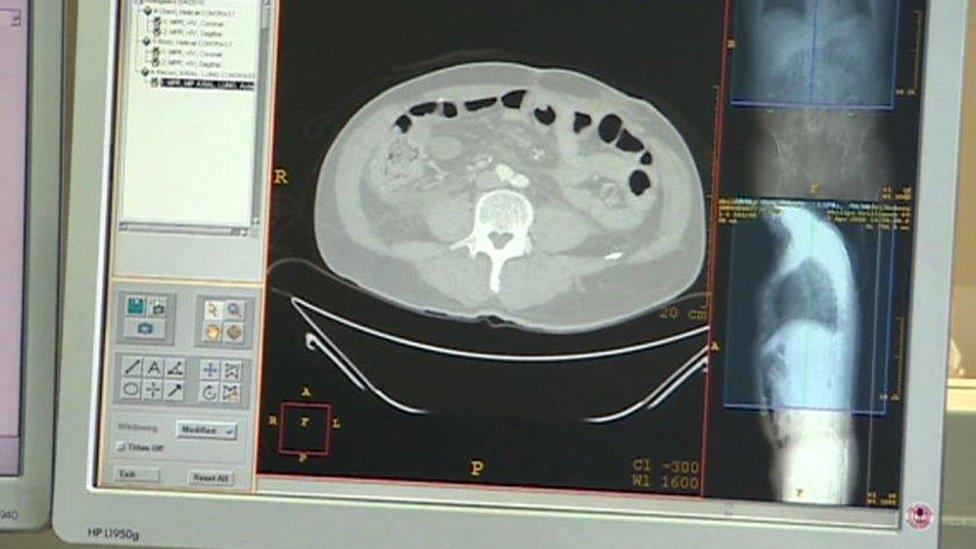Cardiff and Swansea scan trial targets head cancers
- Published
- comments
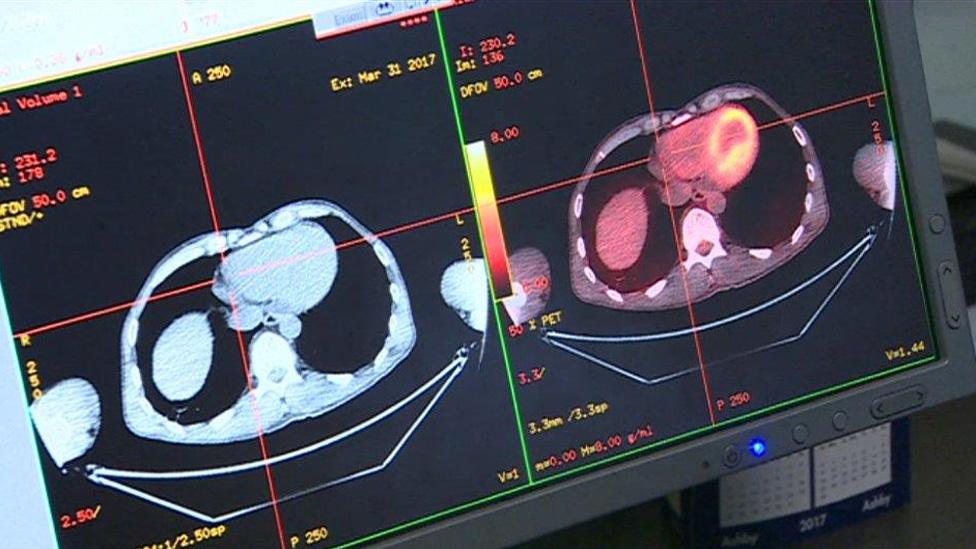
Detailed imaging techniques are to help doctors target head and neck cancers more effectively in a £720,000 clinical trial.
It aims to improve the treatment and survival rates at Cardiff's Velindre and Swansea's Singleton hospital.
The 3D scanning pinpoints the exact site of a tumour and maps the cancer's behaviour more accurately to target it with radiotherapy.
The trial, starting later this year, is being funded by two charities.
It will combine modern radiotherapy with advanced medical imaging, known as PET.
Doctors say this sort of PET scanning not only sees the tumour's outline, as it would on a CT or MRI scan, but it also sees the tumour's activity.
This provides far more detail and it is hoped it will give doctors an insight into how the cancer responds to treatment.
Oncologist Dr Mererid Evans explains how it works
"We inject patients with a radioactive sugar which is taken up by tumour cells, because they're dividing very rapidly, and then we can see that sugar that accumulates in the tumour on a scan like a PET CT scan," said consultant oncologist Dr Mererid Evans.
"It's not just anatomical, it gives us a measure of how the tumour is behaving."
Dr Evans said it was the first example of so-called "dose painting" in Wales and it has not been done before with computer modelling to target the cancer.
"What we're planning with the research is to do PET CT scans, not just before treatment to help us target tumours better, but also during treatment so we can see how the tumour is responding to treatment," she added.
"So we will be able to potentially adapt the radiotherapy during the course of treatment to give a higher dose to those very active areas of the tumour."
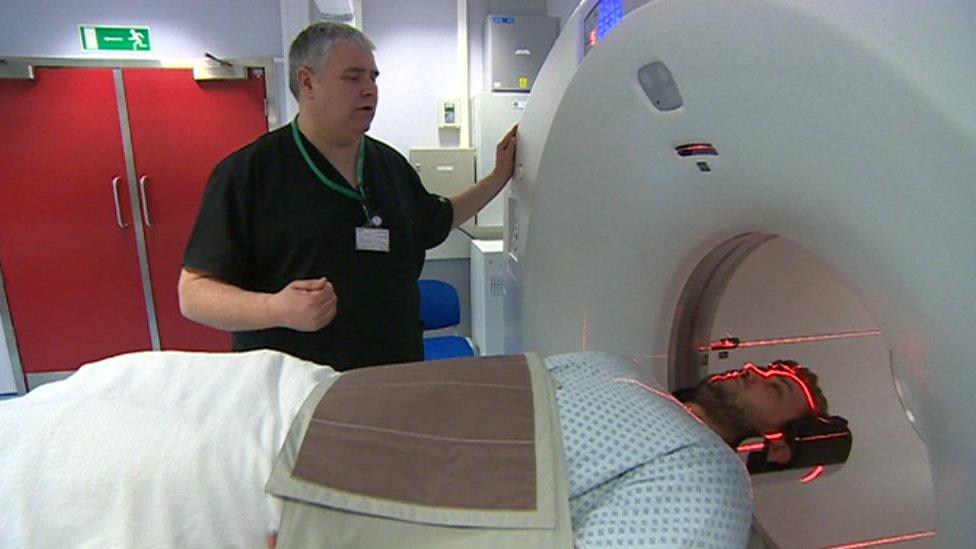
This £1.8m scanner will be used in the trial
These type of tumours are being researched because of the complex anatomy of the head and neck.
10% to 20% of head and neck tumours are not eradicated or come back despite radiotherapy - and the trial aims to make in-roads into these
Head and neck tumours make up around 7% of all cancers
There were around 2,000 new cases in Wales in 2013-15 - an increasing rate since 2001
This type of cancer is the 8th most prevalent of tumours in the UK, but the 6th most prevalent in men in Wales
Head and neck cancer has also risen markedly in women in the UK over the past decade
Once patients on the trial have received initial radiotherapy to eradicate the bulk of the cancer, they will then undergo the PET scans on a £1.8m machine at Cardiff University's £18m PETIC facility.
Dr Tom Crosby, clinical lead for the Moondance programme at Velindre cancer hospital in Cardiff which has helped fund the trial, said it would provide better outcomes for patients.
He added: "This personalised approach offers the possibility of achieving the holy grail of precision oncology, hitting the tumours harder with higher doses of radiation, improving the chance of disease control and possibly cure, whilst sparing normal tissues which when damaged can lead to disabling long terms side effects."
Prof John Moore, president of Cancer Research Wales which is also part-funding it, said, if successful, the "ground-breaking technology" could be transferred to other UK cancer centres and used to treat other tumour types.
- Published11 April 2017
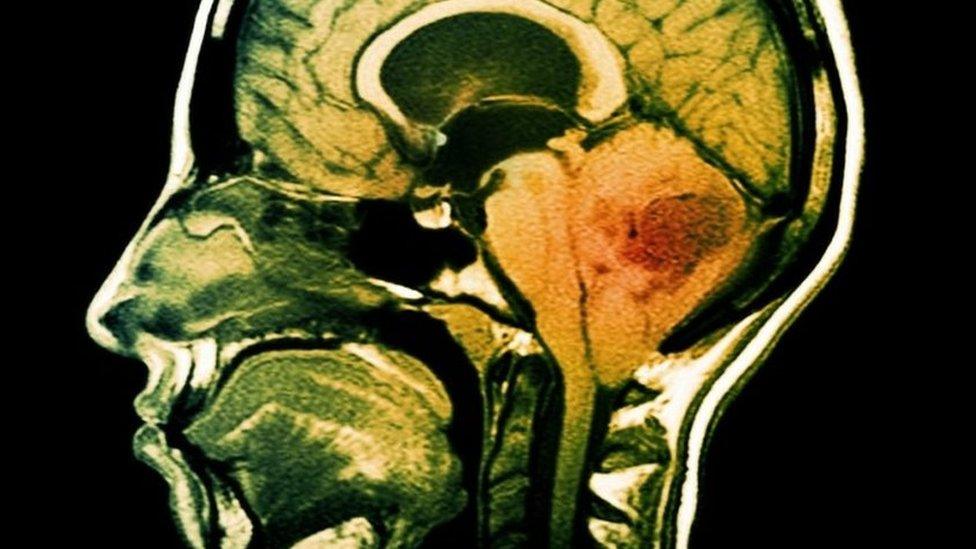
- Published11 April 2016
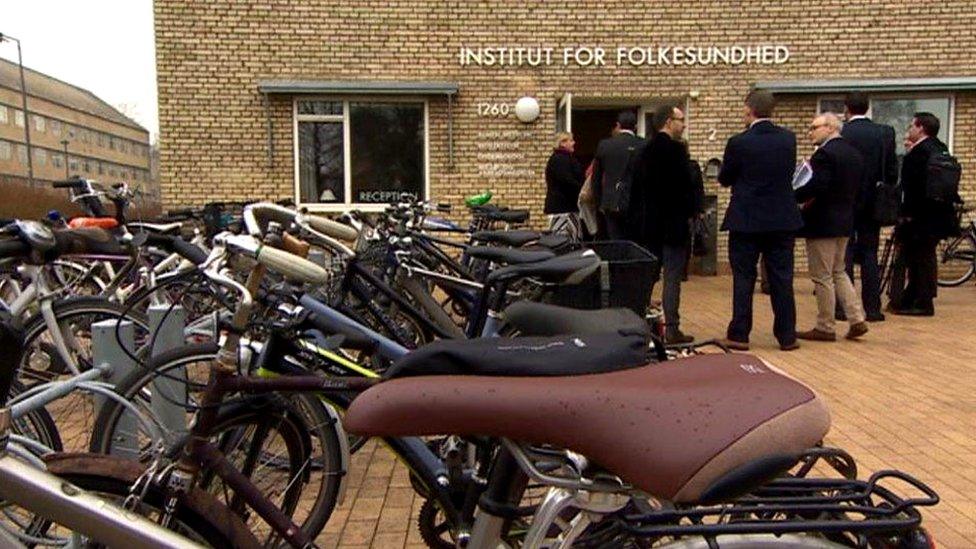
- Published11 April 2016
